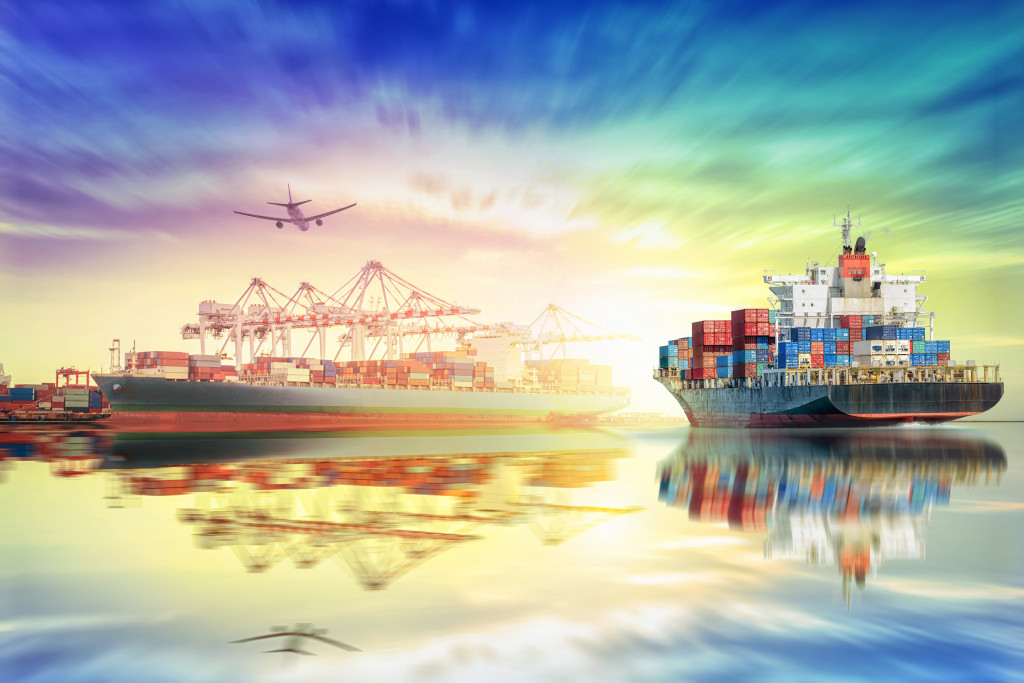Operational cost is the amount of money it takes to keep a business running daily. This includes materials, employee salaries, and other overhead costs. For companies that transport chemicals, managing operational costs are essential to staying profitable. In this article, we will discuss some tips for reducing these costs.
Use a Tug Barge Configuration
One cost-effective option for transporting chemicals is to use a tug-barge configuration. This vessel consists of a small tugboat paired with a larger barge. The tugboat is used to move the barge around, and the size of the barge allows for a larger payload. This type of vessel is particularly well-suited for chemical transport because it offers several advantages.
First, the tugboat can be quickly and easily maneuvered in and out of tight spaces. Second, the size of the barge means that fewer vessels are required for chemical transport, which reduces fuel costs. Finally, the tug-barge configuration is less likely to cause environmental damage in the event of a spill, making it a safe and responsible option for maritime operators.
If you are a chemical factory owner or someone who needs to do chemical shipping as a part of your business, consider buying a robust articulated tug barge . This might seem a huge investment, but if your business operations rely on shipping, getting a tug barge will prove cost-effective and beneficial in the long run.
Use Cheaper Shipping Methods
While it may seem like a minor expense, the truth is that shipping costs can add up quickly, especially for businesses that ship large quantities of chemicals. One way to reduce shipping costs is to use cheaper surface or intermodal transportation.
Surface transportation is typically less expensive than air transportation and can be just as fast, depending on the distance. Intermodal transportation is another cost-effective option since it uses a combination of rail, truck, and ship to move chemicals from one location to another.
Load More Product per Trip
When it comes to chemical transport, across the board, everyone is looking to manage operational costs. One way to do this is by loading more products per trip. This can be done in a few ways:
- With a larger vessel that can take on more volume
- By adding a tanker to a convoy transferring product.

The most important aspect is to properly evaluate the increase in cost for the additional equipment against the operational savings gained by carrying more products. In many cases, the operational savings will outweigh the increased equipment costs and make good business sense. Safety must remain the top priority when discussing chemicals, so any decision made regarding load increases should also consider the potential risks involved.
Use Fuel-Efficient Vehicles
Fuel-efficient vehicles are essential for managing operational costs in chemical transport companies. Vehicle maintenance and repairs can be expensive, and fuel costs can fluctuate greatly depending on the vehicle used.
Fuel-efficient vehicles tend to have lower fuel costs and require less maintenance, saving money in the long run. In addition, fuel-efficient cars emit less pollution, which is better for the environment and can help to improve the company’s reputation. Chemical transport companies that use fuel-efficient vehicles can save money on operations and reduce their environmental impact.
Monitor Your Tire Pressure
Everything matters when managing operational costs, from the price of diesel to the condition of the roads you’re driving on. One often-overlooked factor in chemical transport is tire pressure.
Properly inflated tires can help improve fuel economy by up to 3%, which can significantly affect your overall cost per mile. In addition, properly inflated tires will last longer and are less likely to experience a blowout or failure. That means fewer unexpected expenses and more time on the road making money.
Of course, maintaining proper tire pressure is only part of the equation. You must regularly inspect your tires for wear and tear and replace them when necessary. By staying on top of your maintenance, you can help keep your costs down and ensure a safe and successful operation.
Maintain Your Equipment
Managing operational costs in chemical transport requires well-maintained equipment. This means keeping on top of regularly scheduled maintenance and promptly addressing any issues. Failing to do so can lead to unexpected and costly repairs and reduce your operation’s efficiency.
By maintaining your equipment, you can help ensure that it runs smoothly and safely while keeping your costs down. Chemical transports are essential to many businesses, and proper maintenance ensures their continued success. Contact a qualified technician if you have questions about your equipment or care.
Operational costs can be challenging for chemical transport companies, but there are ways to manage them effectively. By careful planning, maintaining your equipment, and monitoring your tire pressure, you can help keep your costs down and ensure a successful operation. With a little effort, you can keep your company running smoothly and efficiently while saving money.

